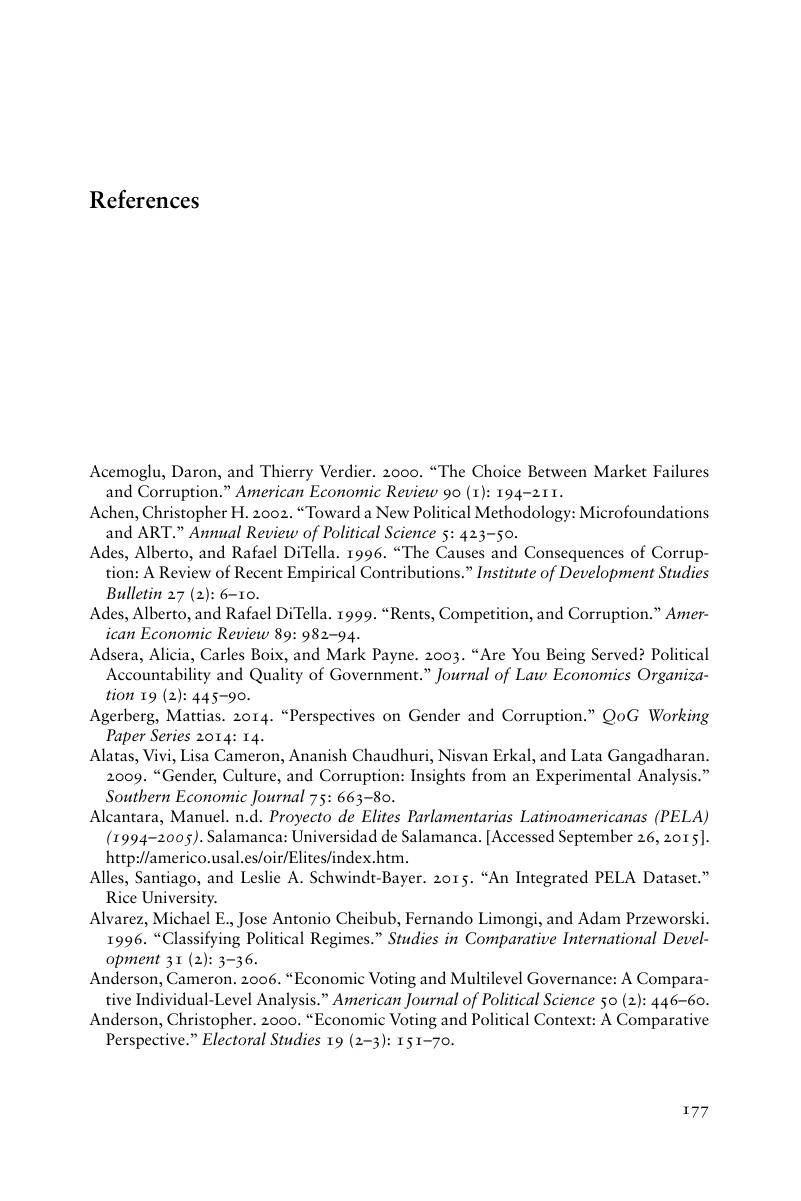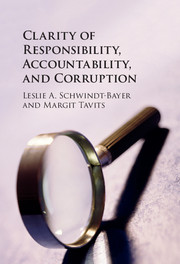Book contents
- Clarity of Responsibility, Accountability, and Corruption
- Clarity of Responsibility, Accountability, and Corruption
- Copyright page
- Dedication
- Contents
- Figures
- Tables
- Book part
- 1 Introduction
- 2 A clarity of responsibility theory of corruption
- 3 A dataset of democracy and corruption
- 4 Clarity of responsibility and aggregate corruption perceptions
- 5 Corruption voting
- 6 Corruption voting
- 7 Elite anticorruption efforts
- 8 Elite attention to corruption
- 9 Conclusions
- Book part
- References
- Index
- References
References
Published online by Cambridge University Press: 05 July 2016
- Clarity of Responsibility, Accountability, and Corruption
- Clarity of Responsibility, Accountability, and Corruption
- Copyright page
- Dedication
- Contents
- Figures
- Tables
- Book part
- 1 Introduction
- 2 A clarity of responsibility theory of corruption
- 3 A dataset of democracy and corruption
- 4 Clarity of responsibility and aggregate corruption perceptions
- 5 Corruption voting
- 6 Corruption voting
- 7 Elite anticorruption efforts
- 8 Elite attention to corruption
- 9 Conclusions
- Book part
- References
- Index
- References
Summary

- Type
- Chapter
- Information
- Clarity of Responsibility, Accountability, and Corruption , pp. 177 - 190Publisher: Cambridge University PressPrint publication year: 2016



